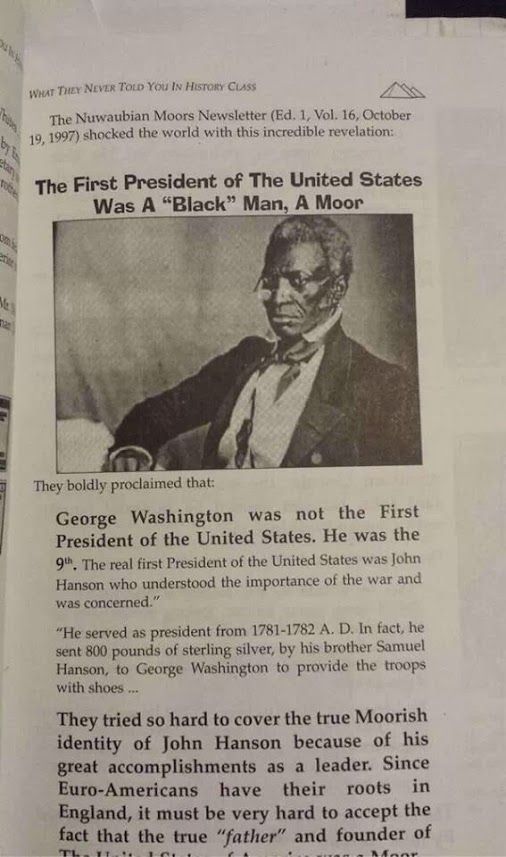America has been taught Black History starting with slavery. Black History is not about slavery it is there to remind those who do not know their Black History; it is a month that has been dedicated to African Americans as they would call melanin based people. It is for them to have something significant in their lives within The United States; a time for people to remember those who have paved the way for them. In the History that is talked about within the structure of schools, it starts with slavery. That is still a form of oppression. Cultivating the narrative that people's culture starts with slavery when that is not accurate it creates a line of oppression of the truth and reality; it becomes what someone else wants it to be.


In the History of America the first President was John Hanson a black man and not George Washington as it has been taught through out American History.( This was confirmed by USA Today) There are people who want to eliminate Black History mouth because they do not feel that any culture needs a month dedicated to them; when in reality they are uncomfortable constantly having to hear during that month all that black people were able to create in The United States of America. Taking away or even wanting to take away this time from black people who fought for their rights to have a month dedicated to them is a form of oppression. Wanting to neutralize peoples accomplishment can become very divisive. It can create friction which can cause an upheaval for those involved. In the understanding of black history, you can begin to understand American History.
Every February, the U.S. honors the contributions and sacrifices of African Americans who have helped shape the nation. Black History Month celebrates the rich cultural heritage, triumphs and adversities that are an indelible part of our country's history.
This year's theme, Black Health and Wellness, pays homage to medical scholars and health care providers. The theme is especially timely as we enter the third year of the COVID-19 pandemic, which has disproportionately affected minority communities and placed unique burdens on Black health care professionals.
The link for this article is available here: Why is black history month celebrated in the U.S

Realizing the effects of your behavior and the role that you played within this world, you understand how your actions affect those around you, whether it was intentional or not. In being all inclusive you are opening the door for others to have a space within that area; there are still people who are left out of the inclusivity of things. That within itself is a bias and a form of prejudice. Some will tell you they did not intentionally leave others out, but when you are able to proceed in life without the diversity that is needed to create inclusion of others you are causing a rift within the realm of true transparency; meaning you aren't showing any form of being transparent at all. In admittance of the bias or the neglect that is thrown into society you can begin to draw a clear picture of where the lines have been crossed or blurred in any situation. Black History month was created so that Black people can have a time where their accomplishments were relevant and their history was taught to them. It started with Black History week in 1926 and Developed into a month due to President Gerald Ford. He felt that black people should have an entire month dedicated to them because he wanted them to feel seen and heard in the year 1976.

Why is Black history month in February? "
February is the birth month of two figures who loom large in the Black past: U.S. President Abraham Lincoln (born February 12), who issued the Emancipation Proclamation, and African American abolitionist, author, and orator Frederick Douglass (born February 14). Since the deaths of Lincoln and Douglass (in 1865 and 1895, respectively), the Black community had celebrated their contributions to African American liberation and civil rights on their birthdays. By rooting Negro History Week in February, Woodson sought to both honor the inestimable legacy of Lincoln and Douglass and to expand an already existent celebration of the Black past to include not only the accomplishments of these two great individuals but also the history and achievements of Black people in general."
The full link to this article will be listed below:





Comments